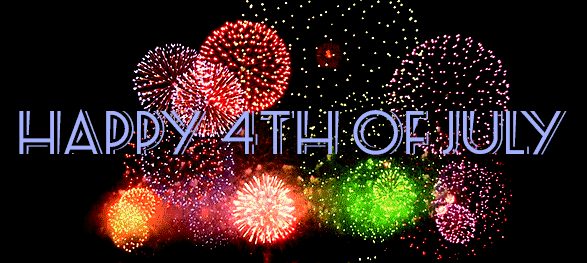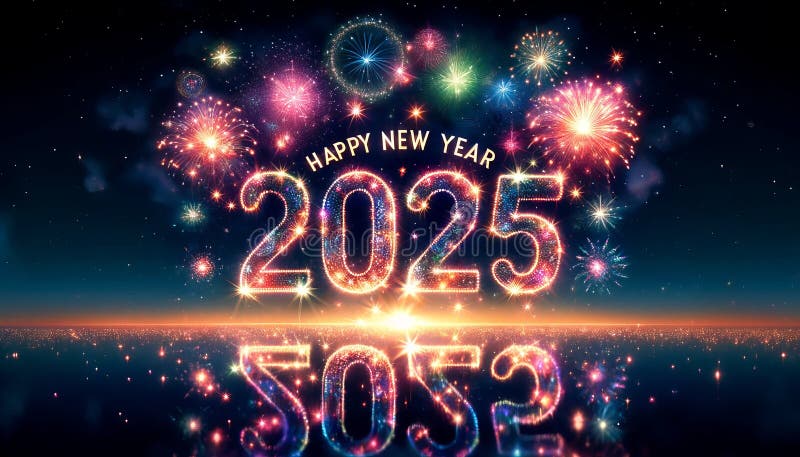Wishing everyone a VERY Merry Christmas!


Smashwords
8th Annual End of the Year Sale
**All eBooks are 1/2 Price from
December 12, 2025 through January 1, 2025
*Notice: these eBooks contain Adult Content
You must be at least 18 to read them.
Sale only valid at Smashwords with the coupon code given when book is added to your shopping cart, through January 1, 2025
**eBooks priced 99¢ are free.
Pearl Harbor Day: Remembering December 7, 1941 in Hawaii

Pearl Harbor Day: Remembering December 7, 1941 in Hawaii
Every year on December 7th, the nation pauses to remember the events of 1941 when the Imperial Japanese Navy launched a surprise attack on the United States naval base at Pearl Harbor in Hawaii. This attack, often described as “a date which will live in infamy,” marked a turning point in history, drawing the United States into World War II.
The Attack on Pearl Harbor
In the early hours of December 7, 1941, waves of Japanese aircraft descended upon the harbor, unleashing devastation on the U.S. Pacific Fleet stationed there. The attack lasted less than two hours but caused unprecedented damage. More than 2,400 American lives were lost, including military personnel and civilians. The assault also destroyed or damaged 19 naval vessels, including eight battleships, and over 300 aircraft.
President Franklin D. Roosevelt addressed the nation the following day, declaring war on Japan and officially entering World War II. The attack united the country and galvanized an unprecedented mobilization of resources and personnel for the war effort.
Honoring the Fallen
In Hawaii, Pearl Harbor Day holds deep significance. The Pearl Harbor National Memorial, located on Oahu, is the focal point of remembrance. The USS Arizona Memorial, which spans the sunken battleship, serves as a solemn tribute to the 1,177 crew members who lost their lives aboard the ship.
On December 7th, memorial ceremonies are held to honor those who perished. Survivors, military personnel, and visitors gather to reflect on the sacrifices made. The events often include moments of silence, wreath-laying ceremonies, and the playing of “Taps” to honor the fallen.
The Legacy of Pearl Harbor
The attack on Pearl Harbor forever changed the trajectory of American history. It served as a stark reminder of the importance of vigilance and the resilience of a nation united in adversity. Today, Pearl Harbor is not only a symbol of sacrifice but also a place of learning and reconciliation.
Visitors to the site can explore the Pearl Harbor Aviation Museum, the Battleship Missouri Memorial, and the Pacific Fleet Submarine Museum, gaining insights into the broader context of World War II and the pivotal role Hawaii played in the conflict.
A Time to Reflect
Pearl Harbor Day is a time to honor the courage and sacrifices of those who faced unimaginable challenges on that fateful day. It’s an opportunity to reflect on the lessons of history and reaffirm a commitment to peace and resilience. For many in Hawaii and across the United States, December 7th is a day of remembrance and gratitude—a solemn occasion that ensures the events of 1941 are never forgotten.
Generated by AI
Why Veterans' Day is Celebrated

Veterans Day is celebrated to honor and express gratitude to all military veterans who have served in the United States Armed Forces. It is observed annually on November 11th and marks the anniversary of the end of World War I. Originally known as “Armistice Day,” the holiday commemorated the armistice agreement that ended the war on November 11, 1918, at 11 a.m. (the 11th hour of the 11th day of the 11th month).
In 1954, after World War II and the Korean War, the U.S. Congress amended the holiday’s name from Armistice Day to Veterans Day to recognize and honor veterans of all wars and military service. Unlike Memorial Day, which honors those who died in military service, Veterans Day celebrates the service of all U.S. military veterans, living and deceased. The day often features ceremonies, parades, and other events to acknowledge and thank veterans for their sacrifices and service to the nation.
Thank you, Veterans!
Generated with AI
Happy 30th Anniversary
Kris & Brad
October 14, 2024

Shipwrecked
Kristopher Brown and Bradley Peterson experience the not-so easy life of a young gay couple living in the Pacific Northwest.
Happy Indigenous People's Day
Indigenous Peoples’ Day: Honoring History, Culture, and Resilience
Indigenous Peoples’ Day is a holiday celebrated across various regions in the Americas to honor and recognize the rich histories, cultures, and enduring contributions of Indigenous communities. Observed on the second Monday of October, the day offers a moment to reflect on the resilience of Native peoples and to challenge the colonial narratives that have long dominated mainstream history.
The Origins of Indigenous Peoples’ Day
The movement to establish Indigenous Peoples’ Day emerged as a response to the celebration of Columbus Day. For many Indigenous communities, Christopher Columbus represents a legacy of colonization, forced displacement, enslavement, and cultural erasure. Recognizing this, activists and Indigenous groups began advocating for a more accurate reflection of history by replacing Columbus Day with a holiday that honors Indigenous peoples and their lasting contributions.
In 1992, the city of Berkeley, California, became the first in the United States to officially replace Columbus Day with Indigenous Peoples’ Day. This shift was symbolic, coinciding with the 500th anniversary of Columbus’s arrival in the Americas. Since then, more states, cities, and schools have embraced Indigenous Peoples’ Day, fostering broader awareness of Native history and ongoing struggles.
A Day of Celebration and Reflection
Indigenous Peoples’ Day is about more than just revisiting history—it is also a celebration of culture, language, and the vibrant traditions of Indigenous communities today. Across North and South America, Indigenous peoples continue to shape society through their art, music, governance, and environmental stewardship.
Many communities mark the day with public events such as:
Storytelling and cultural performances: Elders and cultural leaders share traditional stories, dance, and songs to educate the public about Indigenous heritage.
Educational workshops and panel discussions: Schools and universities organize lectures and discussions to explore topics such as decolonization, Indigenous sovereignty, and environmental justice.
Community gatherings and ceremonies: Some events feature prayer circles, land acknowledgments, and ceremonies to honor ancestors and celebrate cultural resilience.
These events promote awareness of Indigenous perspectives, challenge stereotypes, and foster cross-cultural understanding.
Indigenous Peoples’ Day vs. Columbus Day
The replacement of Columbus Day with Indigenous Peoples’ Day has sparked debates about history, identity, and national memory. Advocates argue that celebrating Columbus perpetuates myths about “discovery” while ignoring the suffering Indigenous peoples endured following European colonization. They emphasize the importance of telling the full story of American history, one that includes the voices of Native communities.
Opponents of the change often see Columbus Day as an expression of Italian-American pride, since Columbus’s voyages have long been celebrated as part of Italian heritage in the U.S. However, Indigenous Peoples’ Day does not aim to erase Italian-American history but to shift focus away from glorifying colonization toward recognizing Indigenous strength and survival.
Indigenous Sovereignty and Ongoing Challenges
While Indigenous Peoples’ Day celebrates the progress and persistence of Native cultures, it also serves as a reminder of the challenges Indigenous communities continue to face. Issues like land dispossession, systemic racism, environmental degradation, and the crisis of missing and murdered Indigenous women remain critical concerns.
The day highlights the importance of supporting Indigenous sovereignty and amplifying Native voices in government, education, and environmental policy. Grassroots movements and legal efforts, such as the protection of sacred lands and the preservation of Indigenous languages, reflect the ongoing fight for justice and recognition.
A Path Toward Healing
For Indigenous communities, allies, and educators, Indigenous Peoples’ Day is an opportunity to build bridges of understanding and respect. It encourages everyone to listen to Native voices, acknowledge past injustices, and work together toward a more inclusive future. Schools and organizations are increasingly incorporating Indigenous history into their curricula and programming, fostering awareness among future generations.
In celebrating Indigenous Peoples’ Day, we honor the ancestors who persevered through oppression, the activists who fought for justice, and the generations to come who will carry their cultures forward. It is a call to move beyond historical myths and embrace a more truthful narrative that celebrates the strength, diversity, and wisdom of Indigenous peoples.
Indigenous Peoples’ Day serves as both a celebration and a challenge. It celebrates the richness of Native cultures, while also challenging us to confront the legacies of colonialism and commit to building a just and equitable future.
This article generated by AI

If you live in the United States of America, I hope you have a safe and Happy July 4th.
If you live elsewhere, I hope you have a good weekend.

July 4th is a significant national holiday in the United States, known as Independence Day. It commemorates the adoption of the Declaration of Independence on July 4, 1776, which declared the American colonies’ independence from Great Britain. The declaration, primarily authored by Thomas Jefferson, outlined the colonies’ grievances against King George III and asserted their natural rights to self-government and independence.
Independence Day is celebrated across the country with various events and traditions, including fireworks displays, concerts, parades, barbecues, and gatherings with family and friends. It is a time when Americans reflect on their nation’s history, values, and freedoms, often marked by a sense of patriotism and unity.
Generated by AI

Smashwords
16th Annual Winter/Summer Sale
*All eBooks are 1/2 Price from
July 1 through July 31
*Notice: these eBooks contain Adult Content
You must be at least 18 to read them.
Sale only valid at Smashwords with the coupon code given when book is added to your shopping cart, through July 31, 2024
Some Gave All

Here’s wishing everyone a Safe and Happy Memorial Day.
Thank you to those who served!

